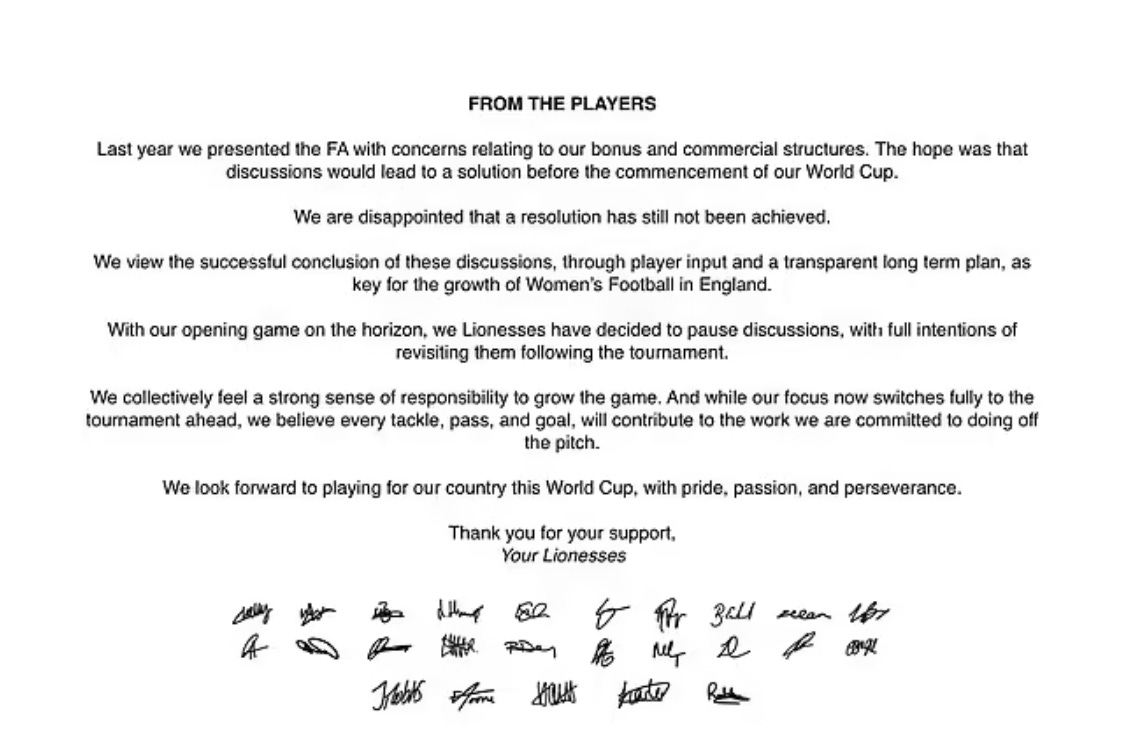Back in my investment banking days, I was responsible from across the Atlantic for a US research department. Every time I headed for JFK after a visit to my team of analysts I felt I needed a shower, so grasping was the culture in that office. I often have the same urge after writing, yet again, in Sport inc. about the greed and ills of the sporting industry. Last week my search for an antidote found me in the heart of the South Downs with the Arundel Castle Cricket Foundation. Reader, I feel revived.
The Arundel Castle Cricket Ground is possibly the most idyllic sporting venue you might find. I’ve certainly never found a better one. Significantly, in this context, it might as well be a million miles (rather than just fifty or so) from the more challenged corners of London, neighbourhoods in which young kids may rarely experience organised sport on green pitches, or even have seen the sea - perhaps not even the Thames.
Last week I watched thirty youngsters from Haringey enjoy a residential programme of activities ranging from bushcraft through time in the sea to a motivational session with a former professional cricketer and basic skills coaching with bat and ball. This is the Foundation’s stock in trade, utilising the Duke of Norfolk’s grounds and funded by a mixture of philanthropy and grants from a variety of charitable trusts. Around 1,500 kids from London and Sussex have some contact with the Foundation each year, and all delivered by only two full time staff and one half-timer.
Tim Shutt, the CEO and one of those two full-timers, is keen to stress that this isn’t about finding young cricketers for an elite pathway. It’s as much as he can do to identify cricket clubs in London that any kids can be directed towards if they get the bug over a few days in Arundel. Instead he stresses the difference between sport development and sport as development - the ability of sport to reshape individuals and communities.
Arundel Castle may provide a unique environment for the delivery of such life-enhancing experiences, but it is not alone as a small charity utilising the power of sport. I chair the foundation at Crystal Palace FC and much that I heard from Tim and the youth workers accompanying the young participants from the Northumberland Park Estate in Tottenham resonated with the experiences of Palace for Life in Croydon and our surrounding boroughs. Across football, rugby, cricket and many other sports, a host of small charities work at a micro level to provide transformative opportunities for young people.
“Being a trustee of the Arundel Castle Cricket Foundation is a constant reminder of the real value of the game, and the wonderful surroundings in which it is played, and how those two things can combine to give young people a moment in time to remember.” Michael Atherton, trustee at Arundel
My uplifting visit was timely - indeed deliberately timed - in the aftermath of the ICEC report into elitism in cricket. That made much of the lack of state school provision as a source of engrained social bias, an observation which can be applied across very many sports.
It’s hardly cricket’s fault that school playing fields have been sold off, or that schools don’t have the resources to provide specialist coaching. The sport isn’t helped either by the structure of the game, which sees most participants inactive for most of every match. But cricket could help itself by encouraging more organic initiatives like those at Arundel to take root, free of the formal structures of the sport, away from rolled wickets and practice nets.
This could only happen if grant givers, from central government outwards, focus less on conventional participation numbers as the basis for funding. The Arundel Castle Cricket Foundation may add only a few chalk marks to the tally of young people playing cricket regularly, but the bang for the buck it delivers on an annual budget of just £400,000 is abundantly clear to anyone prepared to listen to the stories of those kids on its programmes and the adults accompanying them.
Memo to Richard Thompson at the ECB: cricket stands accused of too much privilege, but if you can harness the resources that this entails you have the opportunity for a real transformation of your sport’s place in society.
You can read more about the Arundel Castle Cricket Foundation here. You’ll notice there is a donate button.
New monarch, old problem
One wag asked me hours after Victoria pulled the plug on the 2026 Commonwealth Games whether the Saudis would now step in. Only if Mohammed bin Salman abdicates in favour of King Charles first.
Australia’s cold feet are an immediate shock but might yet be just what the self-styled ‘friendly games’ need if they are to perform a radical reset in order to find a durable place in the modern world.
In depth thoughts in next week’s Sport inc. In the meantime, you might want to look back at this edition on the subject from last summer here
Où sont les médailles?
There’s 372 days to go until the Paris 2024 Olympics opening ceremony. I’ve written before about the very real risk that France is the first nation in recent times that fails to get a home team bounce in the medal table. Evidence of local advantage is typically first seen at the prior Olympics, but France went backwards in Tokyo, slipping from 42 to 33 medals. And its recent World Champs performances in the marquee sports have been poor. It will need to improve sharply on a single medal at the 2022 World Athletics Championships at this summer’s edition in Budapest, for example, but it’s hard to see where the improvement will come from.
Latest warning bell was rung at the World Para Athletics Champs which ended at the weekend. I was still chairing World Para Athletics for the IPC when we awarded this 2023 edition of the event to Paris, in part to help build local engagement ahead of the Paralympic Games. With tickets for the Paras going on sale in the autumn, the sight of near empty stands will have been worrying for the Paris organising committee. And the medal table? France finished a lowly 58th of 62 medal-winning nations with a paltry four bronzes.
Preparations are clearly patchy across French sport, but there are some pockets of true excellence. Closest to my personal interest, France has emerged as a potent force in wheelchair rugby, winning the past two editions of the Euros. In Tokyo GB was the first ever European nation to win a rugby medal of any colour at the Paras when our team bagged gold. We may not be alone for long.
A study from Sheffield Hallam University after the Tokyo Games suggested France should expect to bounce from 8th to 5th in the Olympic medal table, based on Japan’s experience. You can read it here
The power of big numbers
Karen Carney believes women’s football can be a billion pound industry in ten years. This figure grabbed the headlines, but doesn’t actually appear in the report from Carney’s review panel looking at reframing women’s football, Raising the bar. Instead it cites a much lower projection from UEFA for the whole of Europe. For context, the LCP study that Sport inc. featured last week totted up £6.5 billion of annual revenue across the 92 English men’s professional clubs.
The Carney report is excellent, but what shines through is the need for significant pump-priming investment ahead of potential returns to build quality, accelerate growth in fanbases and attract sponsor and broadcast dollars. A billion pounds is a great sales pitch, but the realistic staging posts en route will prove more important in the crunchy negotiations between all parties in the months and years ahead.
UK broadcasters are reported to have paid just £9 million for the rights to the FIFA Women’s World Cup that starts today.
In case you’ve not seen it already, enjoy this ad promoting Les Bleues
One out, all out
Intrigued to see Hollywood A-listers striking in support of their less well-off colleagues. America has also occasionally seen sports stars withdraw their labour in disputes over pay and conditions. Might the same ever happen here?
Welsh rugby players took the WRU to the brink in the Six Nations this year. Could English players challenge the restriction on them playing (lucratively) overseas if they want to retain their eligibility to represent their country? How do England cricketers feel about pay and rations for their less feted county colleagues? What about welfare provision for injured players across sports?
Would a strike by female footballers get them leverage if Karen Carney’s recommendations aren’t enacted? The Lionesses have put their bonus dispute with the FA on ice for the duration of the World Cup (see their open letter below). How hard are they prepared to push post tournament?
Where might militant leadership emerge from? Think the unthinkable.







Interesting re France medals at the next Olympics. They must be so thankful for the emergence of Leon Marchand in the pool. A genuine superstar who could get 3/4 golds in the first week
The women's football review raises some big questions, in particular should women's football go hell-for-leather for growth, including "pump-priming investment for growth" as you suggest? A potential danger with this may be that women's football becomes dominated by the same big six/seven clubs that currently dominate men's football in England - as they're the ones that can (and indeed are) putting big money in now. This could squeeze out from genuine competitiveness the smaller community based clubs that have done so much to develop women's football in recent years.
Or should women's football go for a more careful and considered approach to growth based around real financial sustainability, and avoid falling into some of the traps being experienced in the men's game (as covered in the LCP report you mention, of which I was a co-author)?
The response to the review issued this week by Lewes FC, the "world's first gender equal football club" is well worth reading, covering these issues in some detail.
https://lewesfc.com/wp-content/uploads/2023/07/2023-Lewes-FC-Response-to-the-Womens-Football-Review.pdf